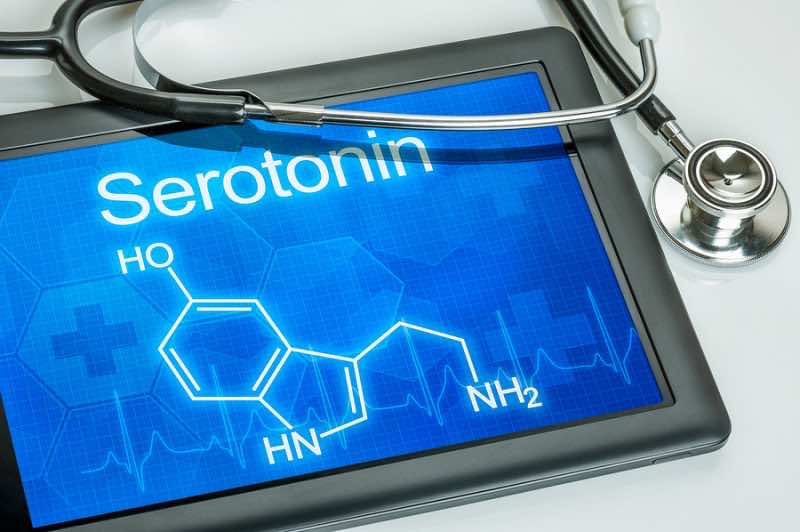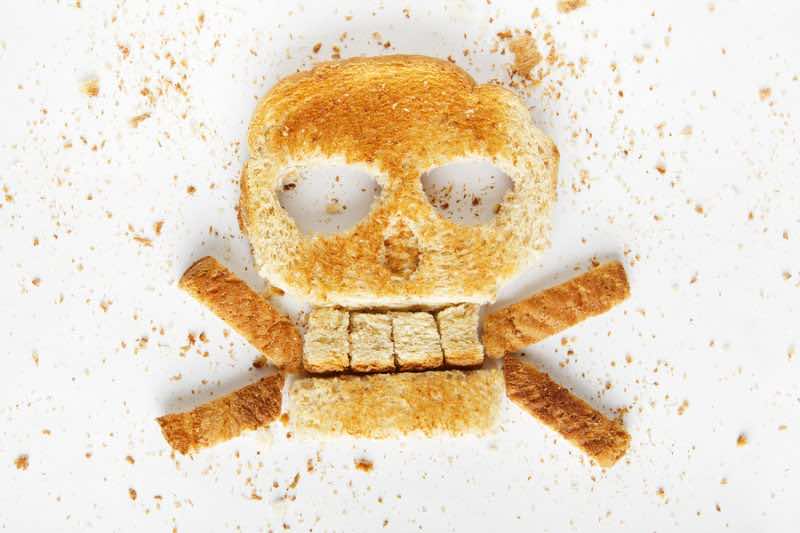The Dangerously Addictive Effects Of Gluten And Wheat

Think you just love the taste of bread? For many people, if you tell them it’s time to cut bread out of their diets, along with all other wheat-based foods, they’ll tell you you’re crazy. They can’t live without bread! Many believe it’s just a simple food preference.


What you may not realize, however, is that bread and all wheat-based products can actually be addictive in nature. Meaning there’s more going on than a simple taste preference causing you to prefer that food.
This is why cutting these foods out is often so problematic. You try to omit them from your diet, and the next thing you know, you’re halfway through a loaf of bread. You now feel miserable about yourself and don’t understand why you can’t stick to the diet plan for once.
So what is it about gluten that’s so addictive? How come you just can’t get off the wheat bandwagon?
Let’s go over some of the main points, so you know why this is so dangerous for your health.
Gluten And Serotonin

First, let’s talk about how eating gluten impacts your brain. When most people think about the foods they eat, they don’t tend to think about what takes place in the brain.
Remember, everything you eat on a day-to-day basis impacts your system as a whole – brain included. It isn’t just about your body and fueling that belly of yours. It’s about nourishing your entire body, which includes your brain.
And gluten can do a number on your brain.
When you eat gluten or any simple carbohydrate-based food, for that matter, your brain is going to release a neurotransmitter called serotonin. This is the same neurotransmitter, believe it or not, that is released when you do certain types of recreational drugs.
So in a sense, one could almost liken eating gluten to taking drugs. Okay, maybe we won’t go quite that far, as hard drugs are more addictive than gluten, but that connection is still there.
When you consume gluten, your brain releases this substance, and in return, you find you feel calm, relaxed, and in a better mood. Think about it for a second. Let’s say you treat yourself to a large box of donuts. How are you feeling afterward?
Take away the fact you may be feeling slightly guilty from eating all those donuts. What else do you feel? Did your mood improve? Do you feel less stressed and anxious? Are you feeling a bit sleepy as well?
These are all effects that serotonin has on you. When you down that box of donuts, you feel good. Your body – and brain – love it. Never mind that you may slowly start to feel worse and worse as this serotonin effect starts to wear off.
The fact is, once it does start to wear off, that’s when you’re going to want another ‘hit,’ so to speak. You’re going to want to keep taking in more and more of these simple carbs made from gluten so that you can keep feeling that way. After this cycle has repeated itself a number of times, that’s when you may find that you’ve now become addicted.
You’re in a chain of events, and it might feel nearly impossible to break free.
In this manner, simple carbohydrates are addictive. There are actual changes in brain chemistry that take place when you eat them, so don’t feel too bad when you go in for yet another slice of that bread.
It isn’t just your willpower failing you here; it’s physical alterations in how your body is working that are prompting you to eat these foods that you crave.
Gluten And Exorphins
Now, in addition to having an impact on this brain chemical, there is another way in which gluten proves to be addictive.
There is some research out there now illustrating that when gluten is broken down in the body, the peptides that it’s made up of (the proteins found in gluten) can activate opioid receptors in the body. These peptides are referred to as gluten exorphins and cannot be made in the body itself. Therefore, they have to come from outside substances.
When active, these opioid receptors trigger the pain/pleasure reward center in the brain and can lead to a strong addiction. Many don’t realize how strong this can be, but for anything triggering it, you may be driven to keep consuming that substance to reap the same effects.
The Dangerous Effects Of Gluten Addiction

Now you might be thinking, so what. Even if gluten is addictive, it’s not nearly as dangerous as being addicted to, say cocaine or some other hard drug.
While that may be true, this doesn’t mean it shouldn’t get your attention. In fact, for a select group of people who are dealing with celiac disease, the fact is when you consume gluten, the proteins found in gluten can be very damaging to your digestive system. This can cause real issues that could lead to malabsorption, nutritional deficiencies, and long-lasting health problems.
Those suffering from celiac disease must carefully assess everything they put into their body. A gluten addiction could become fatal if not addressed for those individuals.
And even for those who don’t have celiac disease, gluten addiction can be problematic.
First, it drives you to consume more food. When you are addicted to gluten and wheat-rich foods, you’re on the high carbohydrate bandwagon for life, more or less. Almost all foods that are rich in gluten are also naturally high in carbohydrates and are typically high in calories.
As you may already know, when you consume processed carbohydrates, your blood glucose level will spike and then quickly crash, leaving you running for more carbohydrates. If you go through this cycle often enough – eating carbohydrates, craving carbohydrates, eating more carbohydrates, it’s only a matter of time before your weight balloons upwards.
A higher body weight sets you up for many health challenges that must be considered seriously. Even if you are someone who practices body acceptance and therefore isn’t bothered all that much by a 10-pound weight gain or so, this doesn’t mean that you’re healthy at that higher body weight. You may accept yourself, but health must be kept at the forefront of your mind.
Another reason that gluten addiction is a very serious problem is that it can also set you up to experience very high blood sugar levels. Gluten-based foods are usually simple carbohydrates, and when consumed, they cause the body to release a high amount of insulin to control the corresponding blood sugar high that you are experiencing.
Over time as this keeps happening, your cells may get less and less sensitive to the insulin, and as a result, you may become insulin resistant. This is just one step away from developing full-blown diabetes.
Another big problem? poor Inflammatory response. A big reason that many of us exhibit poor inflammatory response is because of our body’s over-reliance on wheat-based foods, to begin with. By cutting these out and going gluten-free, we resolve the problem.
Finally, for those dealing with celiac disease, consuming wheat may also trigger other autoimmune diseases. There appears to be a strong correlation between individuals with celiac disease and those with Hashimotos Thyroiditis, diabetes, and multiple sclerosis. These are all conditions that can be devastating to your health in the long run.
By eliminating wheat-based foods from your diet, you take a protective stance against these conditions, reducing the chances that they become a part of your health picture.
So as you can see, gluten addiction is a very real thing, and if you are addicted, it can devastate your overall health and well-being. Those who are addicted to gluten are setting themselves up for all of these problems if they can’t get control their addiction and break free once and for all.
Given the nature of the addiction, breaking free can be quite challenging. Many people have tried multiple times to start eating wheat-free, but eventually, bread returns to their diet.
References:
Fukudome, Shin-ichi, and Masaaki Yoshikawa. “Opioid peptides derived from wheat gluten: their isolation and characterization.” FEBS letters 296.1 (1992): 107-111.
Soares, Fabíola Lacerda Pires, et al. “Gluten-free diet reduces adiposity, inflammation, and insulin resistance associated with the induction of PPAR-alpha and PPAR-gamma expression.” The Journal of nutritional biochemistry 24.6 (2013): 1105-1111.
Sategna-Guidetti, Caria, et al. “Autoimmune thyroid diseases and coeliac disease.” European journal of Gastroenterology & Hepatology 10.11 (1998): 927-932.




